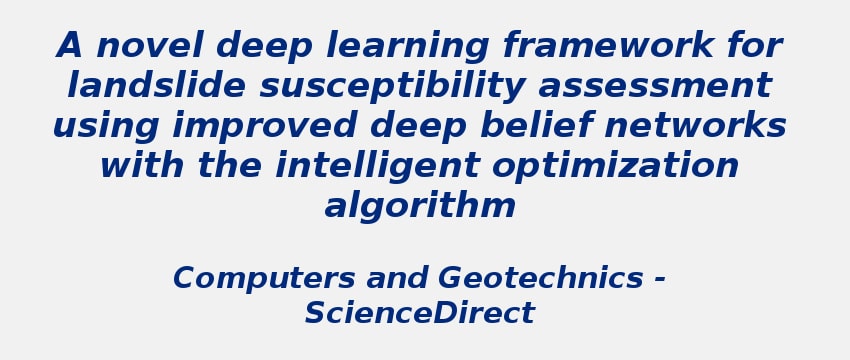Research Area: Machine Learning
This research proposed a novel deep learning framework that combines the Laplace function sparse regularized continuous deep belief network (LSCDBN) and the Gray Wolf Optimization Algorithm (GWO) and the Whale Optimization Algorithm (WOA), to perform landslide susceptibility assessment. This framework mitigates the challenges of feature homogenization for continuous input variables for landslide condition factors, limited landslide samples, and local optima in the training process. To facilitate this investigation, a meticulous compilation of existing landslide occurrences was used to create a database comprising 18 landslide conditioning factors. To compare the performance of the model, a set of statistical indicators was employed. The results demonstrate the superior performance of both the LSCDBN-GWO model (AUC = 0.952, RMSE = 0.182) and LSCDBN-WOA model (AUC = 0.964, RMSE = 0.174) when compared to the alone LSCDBN model (AUC = 0.913, RMSE = 0.291). It is noteworthy that the performance of the LSCDBN model outperformed that of lone machine learning models (SVM, BP, RF, and LR), lone deep learning models (RNN and CNN), and hybrid deep learning models (CNN-GWO and CNN-WOA). Therefore, it is evident that the proposed LSCDBN-WOA framework can generate models that are optimally suited for landslide susceptibility assessment.
Keywords:
Author(s) Name: Shaoqiang Meng, Zhenming Shi, Gang Li, Ming Peng, Liu Liu, Hongchao Zheng, Changshi Zhou
Journal name: Computers and Geotechnics
Conferrence name:
Publisher name: ScienceDirect
DOI: 10.1016/j.compgeo.2024.106106
Volume Information: Volume 167, (2024)
